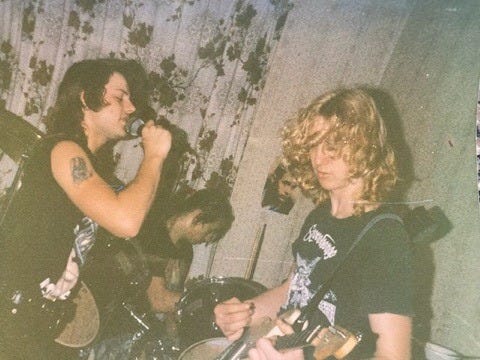Why Guns N’ Roses Died When Steven Adler Left
Adler's exit taught us that "It don't mean a thing if it ain't got that swing"
Music has always been my constant companion as a screenwriter - so much so that I once considered giving Joni Mitchell a co-writing credit, convinced it was her siren song that had lured me into a particular story. Long before I ever touched a script, I was a professional musician. I played guitar in a rock band and even had a publishing deal with Sony (contingent on Virgin Records picking up distribution) before we inevitably imploded. So, expect some musings on various bands - my temporal lovers, as I like to call them.
By the time Use Your Illusion I and II dropped, Guns N’ Roses had already flatlined. Sure, the albums sold by the truckload, the tours were packed, and Axl was still late for every show. But something vital had vanished: the reckless, ragged swing that made Appetite for Destruction one of the greatest rock debuts of all time. And the cause of death? It wasn't drugs or ego. It was the quiet sacking of Steven Adler, the band's original drummer and unsung heartbeat.
Steven Adler wasn’t technically the best drummer in the world - not even close. But that was never the point. He didn’t need double-kicks or odd-time signatures. He had something rarer: feel. Adler swung. His playing had that loose, behind-the-beat quality that gave Appetite its swagger. It wasn’t just rock. It was sleaze-funk, punk-blues, sex-on-the-edge-of-violence. It was the sound of five street kids on the brink of disaster and stardom, and Adler’s drumming was the glue holding it all together without ever tightening the bolts too much.
Listen to “Rocket Queen” or “Mr. Brownstone” and focus on the rhythm. There’s a looseness that dances. It's human. It breathes. Adler played drums like a guy who might fall off his stool at any moment - then miraculously wouldn’t. That unpredictability was the thrill. Guns N’ Roses sounded dangerous not because they were heavy, but because they sounded like they might collapse mid-song in a haze of sweat, heroin, and a poor choice of lovers.
Then came Matt Sorum.
Hired during the recording of the Use Your Illusion albums, Sorum brought with him a kind of mechanical precision that, while technically competent, neutered the band’s original magic. The minute Adler was gone, so was the groove. Sorum is a metal drummer. Big, bombastic, tight. Great for The Cult. Perfect for arena shows. But with him on the throne, GN’R didn’t swing - they marched. The songs got longer, the arrangements got busier, and everything became tighter, heavier, and, fatally, more serious.
What had once been a glorious trainwreck of a band now sounded like a stadium act rehearsing for the Grammys. Compare “It’s So Easy” to “Estranged.” The former struts, the latter trudges. One makes you want to snort something off a mirror; the other makes you wonder how many overdubs it took to suck the life out of Slash’s guitar.
The mythos of GN’R was street-level danger: alleyways, broken bottles, Sunset Strip squalor. With Sorum, they started sounding like a band that had discovered reverb units and philosophy. Axl swapped lyrics about heroin and cheap sex for piano ballads and epic pretension. Sure, Adler’s retirement from the band was justified: he was Steven Drug-Addled by this point - but the band’s chemistry never recovered after he left.
In trying to evolve, Guns N’ Roses sterilised. They chose technical proficiency over feel, metal over rock 'n' roll. And rock 'n' roll - real rock 'n' roll - isn’t supposed to be perfect. It's supposed to sway and stumble and come at you with a grin and a knife. Adler understood that. His drumming wasn’t just a rhythm track - it was an ethos. He made the band sound like it could fall apart any second - a rock-hard cock threatening to explode through a button fly.
Slash’s solos mattered. Duff’s bass lines mattered. Axl’s banshee wail mattered. But take away Adler’s groove, and you don’t get Guns N’ Roses. You get a band who wanted you to know they were maturing when a great rock song is a pledge to never grow up.





